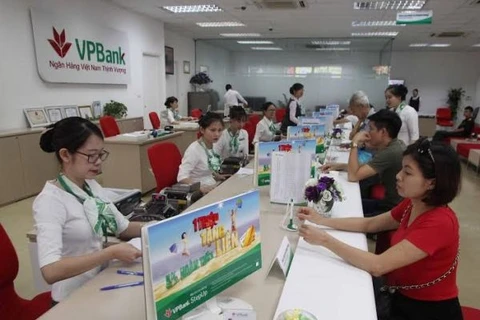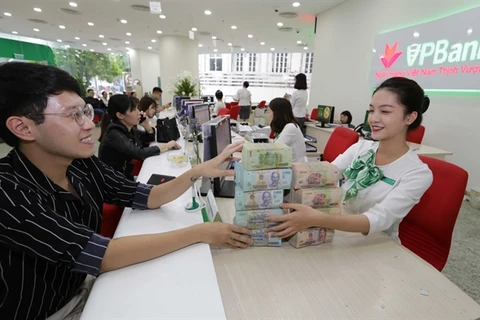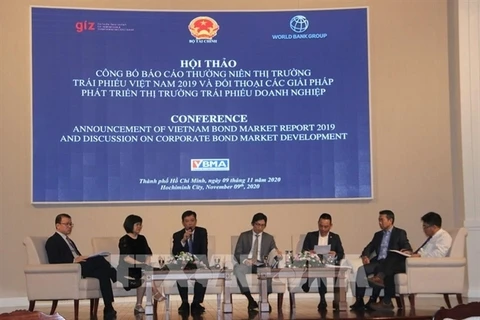 Installing solar rooftop for a household in the central province of Binh Dinh's Quy Nhon city. Green bonds are meant to raising private sector finance for projects with environmental and social benefits, supporting the Sustainable Development Goals. (Photo: VNA)
Installing solar rooftop for a household in the central province of Binh Dinh's Quy Nhon city. Green bonds are meant to raising private sector finance for projects with environmental and social benefits, supporting the Sustainable Development Goals. (Photo: VNA) Hanoi (VNA) – Green, social, and sustainability bonds are considered effective tools for Vietnam to raise capital from the private sector for projects with environmental and social benefits, thus supporting the country’s realisation of Sustainable Development Goals (SDGs) and the Paris Agreement 2015.
The statement was made by Vu Chi Dung, director of the International Cooperation Department of the State Securities Commission (SSC), at the launch of the Handbook 'How-to Issue Guide for Green Bonds, Social Bonds and Sustainability Bonds', held by the SSC early this week.
Moody's Investors Service, in its report in early 2021, expected that global issuance of green, social and sustainability bonds – or sustainable bonds, collectively – will hit a record of 650 billion USD in 2021, a 32 percent increase over the 491 billion USD issued in 2020.
It forecast 375 billion USD of green bonds, 150 billion USD of social bonds and 125 billion USD of sustainability bonds in 2021.
In recent years, the growth of the labelled bond market, especially green bonds, has attracted a diverse and more mainstream investor base.
The institutional investor community such as pension fund managers, asset managers and those with large portfolios, including those with sustainability-related mandates, were increasingly seeking green and low-carbon investment opportunities. Dung said.
Even amid a global pandemic, the demand for green, social and sustainability bonds continues to soar, he added.
The handbook, made in collaboration with the International Finance Corporation (IFC), the Climate Bonds Initiative (CBI) and the Swiss State Secretariat for Economic Affairs (SECO), provides corporate issuers, and other market players, guidance in applying the global and ASEAN standards as well as national regulations of green, social and sustainability bonds which can help mobilise resources for socio-environmental friendly and sustainable projects.
At the handbook launching event, Pham Hong Son, SSC Vice Chairman, said that this handbook will support the market players to understand the international and regional practices in issuing green, social and sustainability bonds, managing the proceeds from those bonds as well as to following the related environmental and social impact reporting.
“The SSC considers the development of such labelled bond products as a key factor contributing to the sustainable development of Vietnam’s capital market," he added.
The IFC has been pioneering in a number of green bond transactions in the region and looking for opportunities in Vietnam’s promising green bond market,” said Kyle Kelhofer, IFC Country Manager for Vietnam, Cambodia and Laos.
“We believe that green bonds will be an effective vehicle for mobilising long-term funding for sustainable infrastructure and renewable energy projects, which the traditional lending products might not be able to afford. This will help expand funding for Vietnam’s green and sustainable economic growth,” he said.
As a member of the ASEAN Capital Markets Forum (ACMF), the SSC has been active in promoting the ASEAN Green Bond Standards (AGBS), ASEAN Social Bond Standards (ASBS), and ASEAN Sustainability Bond Standards (ASUS), based on the International Capital Market Association (ICMA)’s Green Bond Principles, Social Bond Principles, and Sustainability Bond Guidelines, to create a sustainable asset class in Vietnam./.
VNA
























